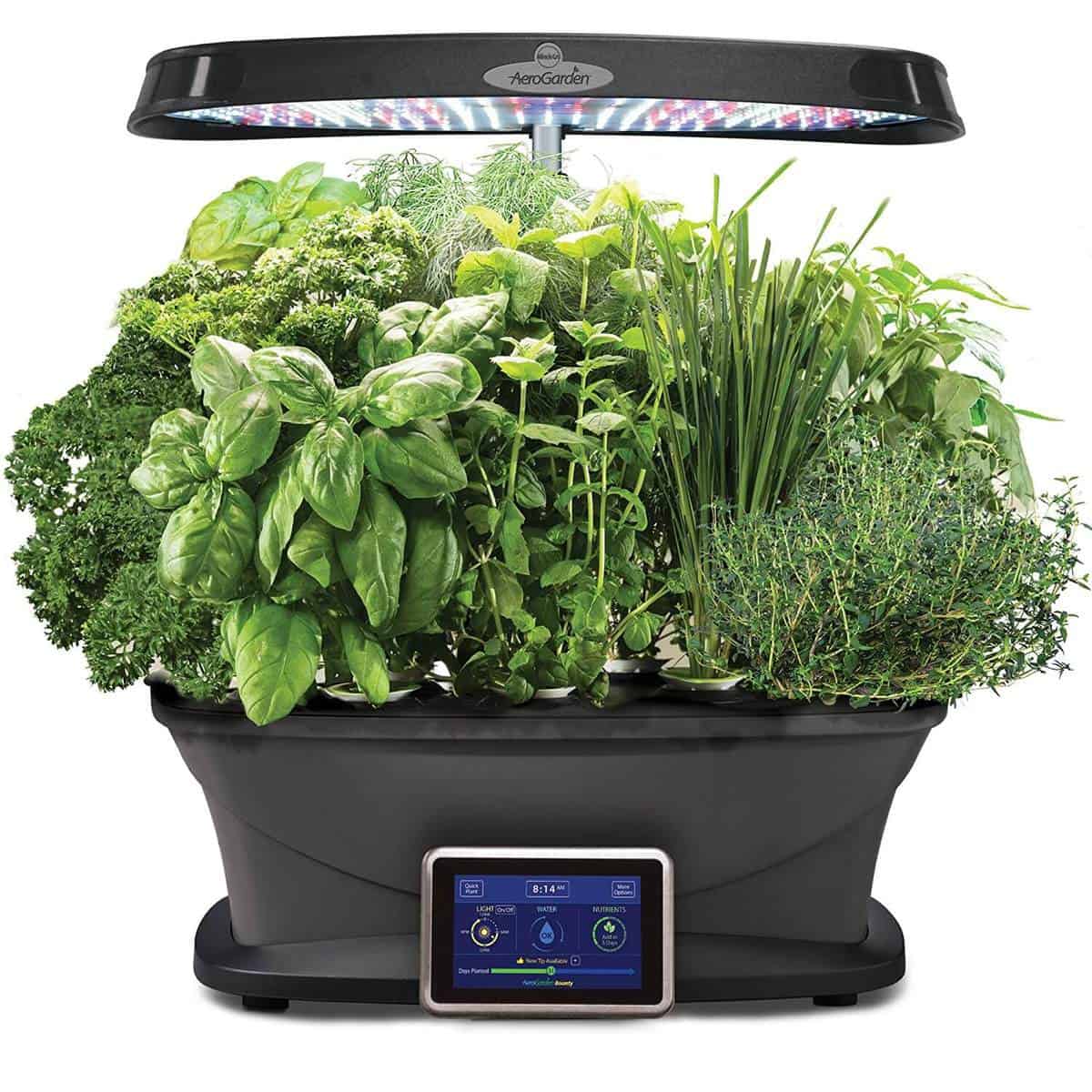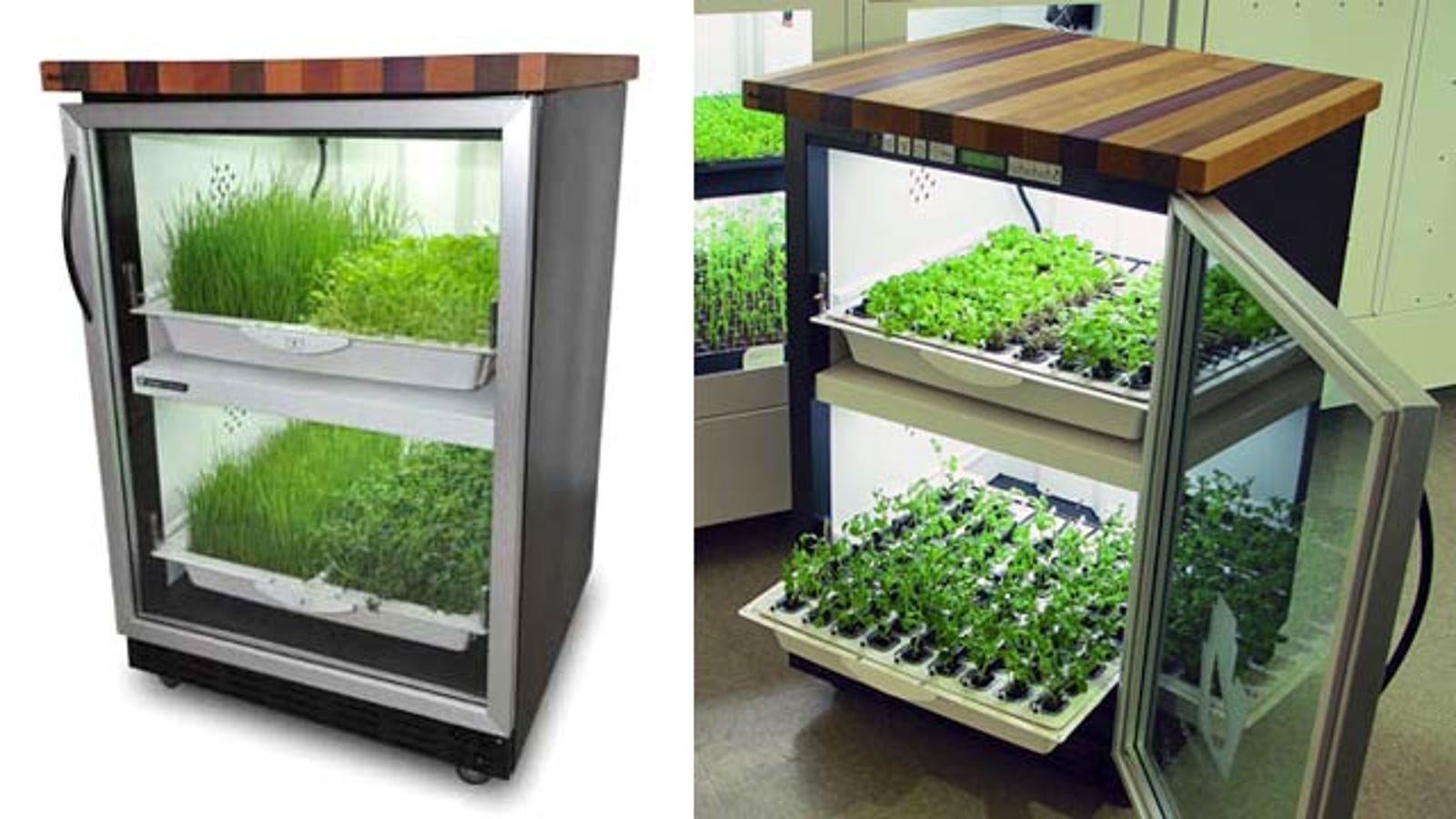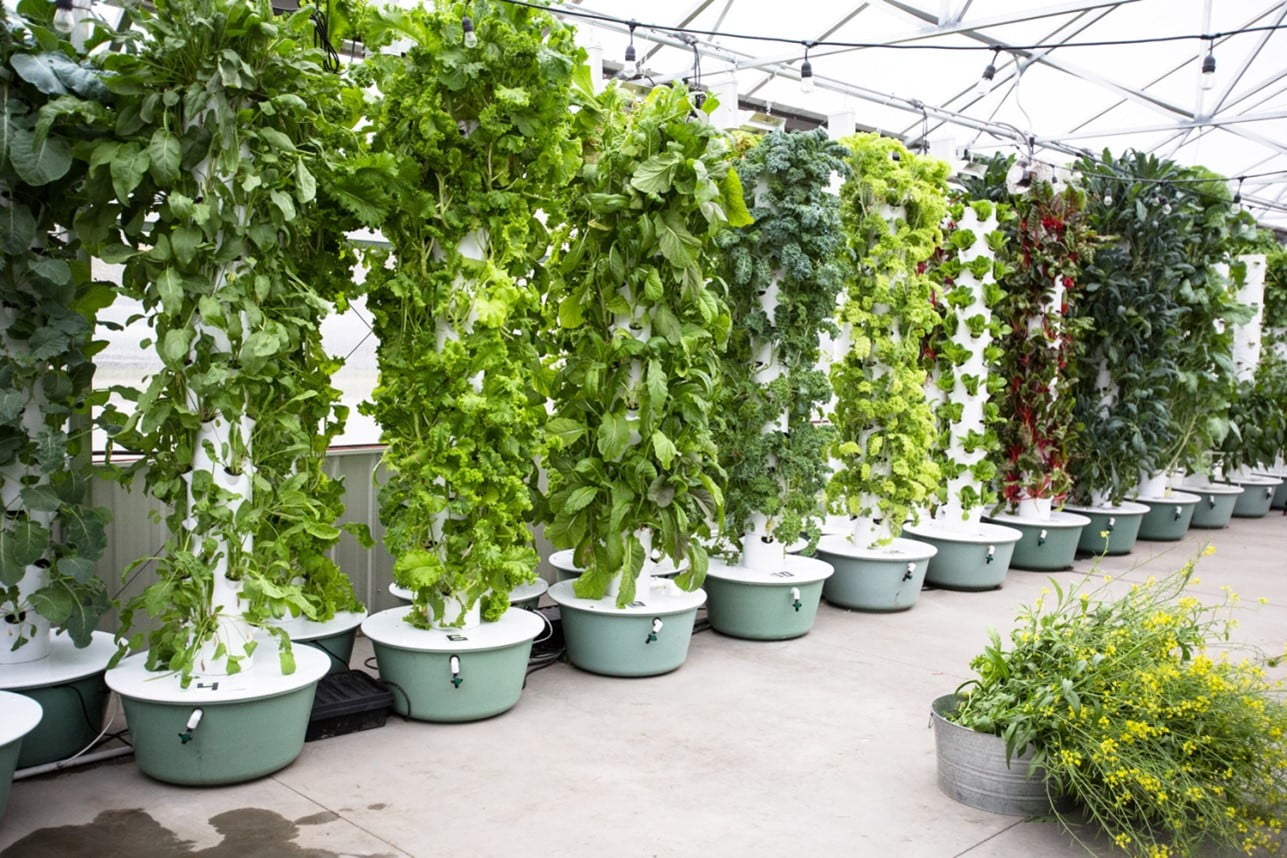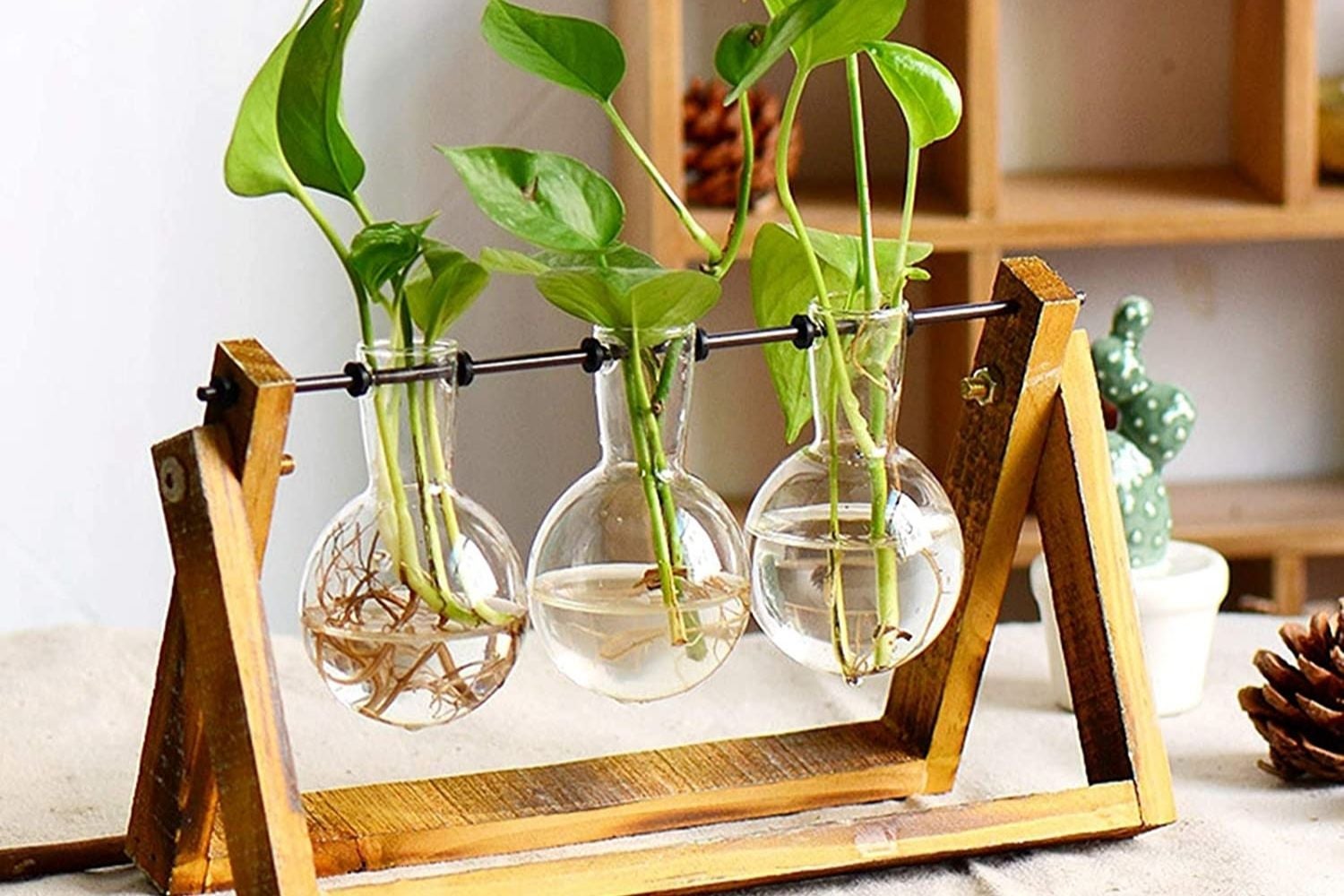Hydroponics home depot – Discover the world of hydroponics at Home Depot, where you can learn everything you need to know about growing plants without soil. From the basics to advanced techniques, we’ve got you covered. Let’s dive into the exciting realm of hydroponics and explore the possibilities of indoor gardening like never before!
Hydroponics Overview

Hydroponics is a method of growing plants in a nutrient-rich water solution, without the use of soil. It offers several advantages over traditional soil-based gardening, including:
- Increased plant growth and yield
- Reduced water consumption
- Improved nutrient uptake
- Reduced disease and pest problems
- Suitable for indoor and outdoor cultivation
The concept of hydroponics has been around for centuries, with early experiments dating back to the ancient Babylonians and Egyptians. In the 20th century, hydroponics gained popularity as a method for growing crops in space and in controlled environments. Today, hydroponics is widely used in commercial greenhouses and home gardens around the world.
Types of Hydroponic Systems
There are several different types of hydroponic systems, each with its own advantages and disadvantages. The most common types include:
- Deep Water Culture (DWC):Plants are suspended in a nutrient-rich water solution with their roots submerged.
- Nutrient Film Technique (NFT):Plants are grown on a thin film of nutrient-rich water that flows over their roots.
- Ebb and Flow (Flood and Drain):Plants are grown in a grow bed that is periodically flooded with nutrient-rich water and then drained.
- Aeroponics:Plants are suspended in the air and their roots are misted with nutrient-rich water.
The choice of hydroponic system depends on factors such as the type of plants being grown, the available space, and the budget.
Home Depot’s Hydroponics Offerings
Home Depot offers a comprehensive range of hydroponics products, catering to both novice and experienced growers. These products encompass various techniques, from nutrient-film technique (NFT) to deep water culture (DWC), ensuring you have the necessary tools to cultivate thriving plants in a controlled environment.
Each product has been meticulously designed to provide optimal growing conditions for your plants. From grow lights to nutrient solutions, Home Depot has everything you need to create a successful hydroponics system in your own home.
Hydroponic Systems
Home Depot offers a variety of hydroponic systems to suit different growing needs and spaces. These systems range from compact tabletop models ideal for small-scale cultivation to larger, more advanced systems capable of accommodating a greater number of plants.
- NFT (Nutrient Film Technique) Systems:These systems utilize a thin film of nutrient-rich water that flows continuously over the roots of plants. This technique promotes rapid growth and efficient nutrient uptake.
- DWC (Deep Water Culture) Systems:DWC systems immerse the roots of plants directly in a reservoir of nutrient-rich water. This method provides excellent aeration and allows for easy monitoring of nutrient levels.
- Aeroponic Systems:Aeroponic systems suspend plant roots in the air and periodically mist them with a nutrient solution. This technique provides exceptional oxygenation and nutrient absorption, resulting in vigorous plant growth.
Grow Lights
Grow lights are essential for providing plants with the light they need for photosynthesis. Home Depot offers a wide selection of grow lights, including:
- LED Grow Lights:LED grow lights are energy-efficient and emit a targeted spectrum of light that promotes optimal plant growth. They are available in various wattages and sizes to suit different growing areas.
- Fluorescent Grow Lights:Fluorescent grow lights provide a broad spectrum of light that is suitable for a wide range of plants. They are often used as supplemental lighting or for smaller growing areas.
- HID (High-Intensity Discharge) Grow Lights:HID grow lights emit a powerful, concentrated light that is ideal for large-scale cultivation. They are available in various types, including metal halide (MH) and high-pressure sodium (HPS) lights.
Nutrients
Nutrients are vital for plant growth and development. Home Depot offers a comprehensive range of hydroponic nutrients, including:
- Base Nutrients:Base nutrients provide the essential macronutrients (nitrogen, phosphorus, and potassium) and micronutrients (calcium, magnesium, sulfur, and others) that plants need for healthy growth.
- Additives:Additives are used to supplement base nutrients and address specific plant needs. They may include vitamins, amino acids, and beneficial bacteria.
- pH Adjusters:pH adjusters are used to maintain the optimal pH level of the nutrient solution. This is important for nutrient uptake and overall plant health.
Accessories
In addition to the core components of a hydroponics system, Home Depot also offers a range of accessories to enhance your growing experience:
- Timers:Timers allow you to automate the lighting and watering cycles of your hydroponics system, ensuring that your plants receive the optimal amount of light and nutrients.
- Water Pumps:Water pumps are used to circulate the nutrient solution throughout the system. They are available in various sizes and capacities to suit different system sizes.
- Growing Mediums:Growing mediums provide support for plant roots and help to retain moisture and nutrients. Home Depot offers a variety of growing mediums, including rockwool, clay pebbles, and coco coir.
Unique or Exclusive Products
Home Depot offers a number of unique or exclusive products that are not readily available elsewhere:
- Hydroponic Tower Gardens:Tower gardens are vertical hydroponic systems that allow you to grow a variety of plants in a small space. They are ideal for urban environments or for those with limited space.
- Self-Watering Hydroponic Kits:Self-watering hydroponic kits are designed to make hydroponics accessible to everyone. They include everything you need to get started, including a grow system, nutrients, and seeds.
- Hydroponic Grow Tents:Grow tents provide a controlled environment for growing plants indoors. They are ideal for those who want to extend their growing season or who live in areas with harsh climates.
Hydroponics DIY at Home Depot

Setting up a hydroponic system at home is an exciting project that can provide you with fresh, healthy produce all year round. Home Depot offers a wide range of hydroponics products, making it easy to get started with this rewarding hobby.
Here is a step-by-step guide to help you set up a hydroponic system using Home Depot products:
Materials You’ll Need
- Hydroponic grow system
- Hydroponic nutrients
- pH test kit
- Water pump
- Air pump
- Growing medium (e.g., clay pebbles, rockwool)
- Seeds or seedlings
Steps
- Assemble the hydroponic grow system according to the manufacturer’s instructions.
- Fill the reservoir with water and add hydroponic nutrients according to the manufacturer’s instructions.
- Test the pH of the water and adjust it to the optimal range for your plants (usually between 5.5 and 6.5).
- Place the growing medium in the grow beds and plant your seeds or seedlings.
- Connect the water pump to the reservoir and the air pump to the air stones.
- Turn on the system and monitor the plants regularly, adjusting the pH and nutrient levels as needed.
- Choose a hydroponic grow system that is appropriate for the size of your space and the number of plants you want to grow.
- Use a high-quality hydroponic nutrient solution that is specifically designed for the type of plants you are growing.
- Monitor the pH of the water regularly and adjust it as needed to keep it within the optimal range for your plants.
- Provide adequate lighting for your plants, either through natural sunlight or artificial grow lights.
- Harvest your plants when they are mature and enjoy the fruits of your labor!
- Online articles and videos
- In-store workshops and classes
- Hydroponics experts who can answer your questions
- Nutrient solution:A water-based solution that contains the nutrients that plants need to grow.
- Growing medium:A material that supports the roots of plants and provides them with oxygen.
- pH:A measure of the acidity or alkalinity of a solution. The pH of a nutrient solution should be between 5.5 and 6.5.
- EC:A measure of the electrical conductivity of a solution. The EC of a nutrient solution should be between 1.0 and 2.0 mS/cm.
- One of the best things about hydroponics is that it’s a very forgiving method of growing plants. Even if you make a mistake, your plants will usually be able to recover.
- Hydroponics is a great way to grow plants indoors, even if you don’t have a lot of space. You can grow plants in a closet, on a shelf, or even in a small apartment.
- Hydroponics is a sustainable way to grow food. It uses less water and nutrients than traditional gardening methods, and it doesn’t require the use of pesticides or herbicides.
-
-*Vertical gardening
Utilize vertical space by stacking grow trays or using hanging systems.
-
-*Living walls
Create a vibrant green wall using hydroponically grown plants.
- Increased Crop Yield:Hydroponic systems provide optimal conditions for plant growth, resulting in higher yields compared to traditional farming methods.
- Reduced Water Consumption:Hydroponics uses significantly less water than soil-based farming, as water is recirculated and reused within the system.
- Enhanced Product Quality:Hydroponically grown crops often have superior quality, with increased nutrient content and reduced pesticide residues.
- Year-Round Production:Controlled environments in hydroponic systems allow for year-round production, regardless of seasonal variations.
- Initial Investment:Establishing a commercial hydroponic operation requires a substantial initial investment in infrastructure, equipment, and labor.
- Technical Expertise:Hydroponic systems require specialized knowledge and expertise to operate and maintain efficiently.
- Energy Consumption:Indoor hydroponic operations rely on artificial lighting, which can contribute to higher energy consumption.
- LED grow lightsare becoming increasingly popular in hydroponics. LED lights are more energy-efficient than traditional HID lights, and they produce less heat, which can be beneficial in controlled environments. LED lights also allow growers to customize the light spectrum to meet the specific needs of their plants.
- Automated nutrient delivery systemscan help to take the guesswork out of hydroponics. These systems automatically deliver nutrients to plants on a regular schedule, ensuring that they always have the nutrients they need to thrive.
- Vertical farmingis a growing trend in urban areas. Vertical farms use stacked layers of growing beds to maximize space and production. Vertical farming can be a sustainable way to grow food in areas where land is scarce.
Tips and Tricks
Additional Resources
Home Depot offers a variety of resources to help you get started with hydroponics, including:
Hydroponics for Beginners
Hydroponics is a method of growing plants without soil, using water and nutrients. It’s a great way to grow plants indoors, in small spaces, or in areas with poor soil conditions. Hydroponics is also a sustainable way to grow food, as it uses less water and nutrients than traditional gardening methods.
If you’re new to hydroponics, there are a few things you need to know to get started. First, you’ll need to choose a hydroponic system. There are many different types of hydroponic systems available, so it’s important to do your research and find one that’s right for you.
Hydroponic Terms, Hydroponics home depot
Success Stories and Tips
Advanced Hydroponics Techniques
Advanced hydroponic techniques are used by experienced growers to optimize plant growth and yields. These techniques involve precise nutrient management, lighting, and environmental control.
Nutrient Management
Advanced nutrient management techniques involve using specific nutrient solutions tailored to the growth stage of the plants. These solutions contain essential macro and micronutrients in optimal ratios. The pH and electrical conductivity (EC) of the nutrient solution are also closely monitored and adjusted as needed to ensure optimal nutrient uptake.
Lighting
Lighting is crucial for plant growth in hydroponic systems. Advanced growers use high-intensity grow lights that provide the optimal light spectrum and intensity for their plants. These lights are often suspended above the plants and can be adjusted to provide the appropriate light levels at different growth stages.
Environmental Control
Environmental control in advanced hydroponic systems includes regulating temperature, humidity, and carbon dioxide levels. Temperature is maintained within a narrow range to optimize plant growth and prevent stress. Humidity levels are controlled to prevent disease and promote healthy root development.
Carbon dioxide enrichment can be used to increase photosynthesis and boost plant growth.
Hydroponics in the Home Environment: Hydroponics Home Depot
Hydroponics offers numerous advantages for indoor gardening. It allows for controlled growth conditions, maximizing plant yield and quality. Additionally, hydroponic systems are space-efficient, making them ideal for small homes or apartments.
Maximizing Space and Efficiency
To optimize space and efficiency in home hydroponic systems, consider the following:
-*Compact systems
Choose hydroponic systems designed for small spaces, such as countertop or wall-mounted units.
-*Modular systems
Opt for modular systems that allow for easy expansion as your needs grow.
Incorporating Hydroponics into Home Décor
Hydroponic systems can also enhance home décor. Here are some ideas:
-*Hanging gardens
Suspend hydroponic systems from ceilings or walls to add a touch of greenery to any room.
-*Tabletop systems
Place compact hydroponic systems on tables or countertops as a unique and functional decoration.
Hydroponics for Commercial Use
Hydroponics has gained significant traction in commercial agriculture, offering numerous advantages over traditional soil-based farming methods. Commercial hydroponic operations have successfully implemented these techniques to increase crop yield, reduce water consumption, and enhance product quality.
Successful Commercial Hydroponic Operations
Several commercial hydroponic operations have achieved remarkable success, demonstrating the viability and profitability of this approach. One notable example is BrightFarms, a leading indoor vertical farming company that utilizes hydroponics to grow a variety of leafy greens and herbs. BrightFarms operates multiple facilities across the United States, supplying fresh, locally grown produce to major retailers.
Economic Benefits
Challenges
Hydroponics Sustainability

Hydroponics offers significant environmental benefits, making it a sustainable gardening method. By growing plants in a controlled environment, hydroponics minimizes resource consumption and reduces environmental impact.
Water Conservation
Hydroponic systems conserve water by recycling nutrient-rich water. Unlike traditional soil gardening, which requires frequent watering, hydroponic systems recirculate water, minimizing water loss through evaporation and runoff. This water efficiency is particularly advantageous in arid regions or during droughts.
Energy Conservation
Hydroponic systems often utilize artificial lighting to provide optimal growth conditions. However, compared to traditional greenhouse cultivation, hydroponics requires less energy for lighting due to the efficient use of space and controlled environment. The compact vertical design of hydroponic systems allows for higher plant density, maximizing light utilization and reducing energy consumption.
Research and Case Studies
Numerous research studies and case studies have demonstrated the sustainability of hydroponics. For instance, a study by the University of Arizona found that hydroponic tomato production used 90% less water and 50% less energy than conventional soil-based cultivation. Another study by Wageningen University in the Netherlands showed that hydroponic lettuce production had a significantly lower environmental impact than soil-based production, with reductions in water use, greenhouse gas emissions, and land use.
Hydroponics Trends and Innovations

The hydroponics industry is constantly evolving, with new technologies and advancements emerging all the time. These innovations are helping to make hydroponics more efficient, productive, and accessible than ever before.
One of the most exciting trends in hydroponics is the development of new growing media. Traditional growing media, such as soil and rockwool, can be heavy, expensive, and difficult to manage. New growing media, such as coco coir and perlite, are lighter, more affordable, and easier to use.
If you’re looking for a unique way to grow your own food, hydroponics may be the answer. This method of growing plants in water is becoming increasingly popular, and Home Depot offers a wide variety of hydroponic supplies to get you started.
Once you have your hydroponic system set up, you’ll need to choose the right fish to use in your aquaponics system. There are many different fish used in aquaponics , so it’s important to do your research to find the best ones for your needs.
Once you’ve chosen your fish, you can enjoy the benefits of fresh, homegrown food and a beautiful indoor garden.
They also provide better aeration and drainage, which can lead to healthier plants and higher yields.
New Technologies in Hydroponics
Predictions for the Future of Hydroponics
The future of hydroponics is bright. As the technology continues to improve, hydroponics will become even more efficient, productive, and accessible. Hydroponics has the potential to revolutionize the way we grow food, and it could play a major role in feeding the world’s growing population.
Closing Notes
Whether you’re a seasoned pro or just starting out, hydroponics home depot is your ultimate resource for all things hydroponics. With our comprehensive guide, you’ll be equipped to create a thriving hydroponic system in the comfort of your own home.
So, let’s get growing and experience the joy of nurturing plants in a sustainable and innovative way!
Frequently Asked Questions
What is hydroponics?
Hydroponics is a method of growing plants without soil, using nutrient-rich water solutions instead.
What are the benefits of hydroponics?
Hydroponics offers many benefits, including faster plant growth, higher yields, water conservation, and the ability to grow plants in limited spaces.
What types of hydroponic systems are available?
There are several types of hydroponic systems, including deep water culture, nutrient film technique, and aeroponics.
How do I set up a hydroponic system?
Setting up a hydroponic system is relatively easy. You’ll need a growing container, a nutrient solution, and a water pump.
What plants can I grow hydroponically?
You can grow a wide variety of plants hydroponically, including vegetables, herbs, and flowers.
